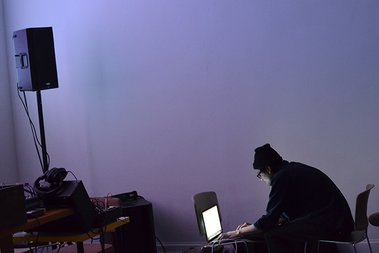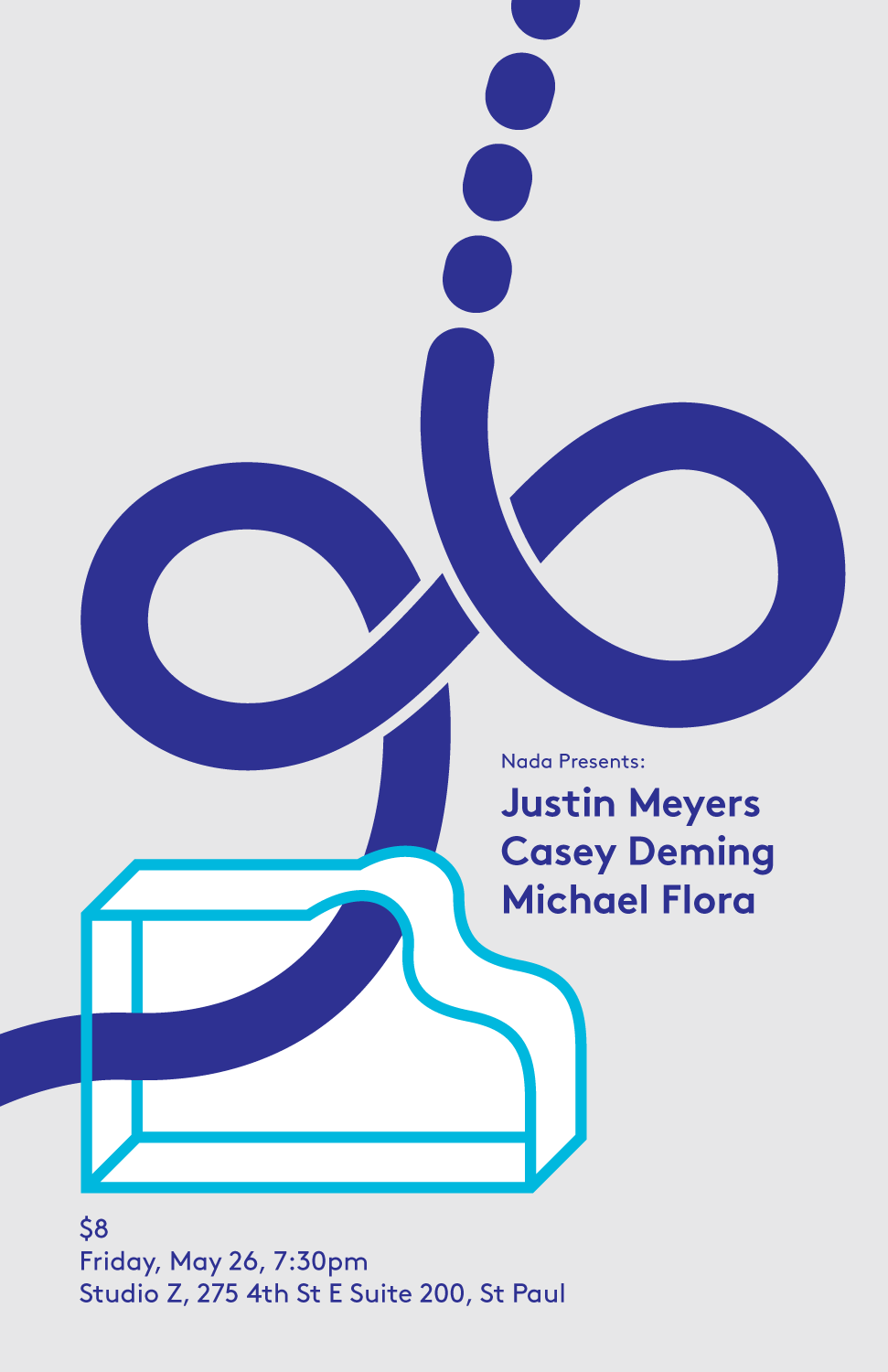
Casey Deming, Justin Meyers and I will each play solo sets. Casey will be presenting Tone Poems: Selections from Henryk Górecki's Symphony # 3 & Beatus Vir, Op. A deconstruction of Górecki's holy minimalism through the use of tape loops. Justin will present new electroacoustic compositions from a forthcoming record entitled “Struggle Artist.” As for myself, I plan on presenting new A/V work. I’m interested in the subjective experience of sound and visuals, so the performance will be more about the interplay of sound and light than trying to project any sort of specific narrative.
What is the story behind Nada?
Originally I started Nada as a record label for releasing my own music and that of my peers. Since then it has grown to act as a general platform for the promotion of experimental, electronic, and electroacoustic musics and sound works in a variety of contexts (e.g. recording, radio, performance). The name Nada is actually a reference to a Sanskrit word, “Nāda" which means "sound" or the "universal sound." In this system of thought, the whole cosmos is simply a projection of sound alone. Interestingly, this idea can be found in scientific theories as well! In quantum theory there is a concept that the elementary particles of matter exhibit wave-like behavior under certain conditions.
You traveled to India to study Hindustani classical music with Pandit Shivnath Mishra in 2010. How has this experience informed your music-making?
Around 2008-2009 I was listening to a lot of drone based musics (LaMonte Young, Phill Niblock, et al), which naturally led me to Indian classical music. At the same time, I was practicing seated meditation on a regular basis. I decided to study vipassanā meditation and Hindustani music in India in 2010. For Indian musicians, music acts as a medium for a deeper connection to the universe. They call it Nada Yoga or sound meditation. As part of my education, I had to do some vocal practice and sitar lessons. I never took much interest in developing any sort of technical virtuosity; I was mostly interested in theory and understanding the conceptual aspects of the music.
I am certainly influenced by Nada Yoga’s philosophy. I encourage a voluntary and selective listening approach to my music. My hope is that my work can activate a heightened sense of awareness in the auditor.
Your music explores sound via research and artistic practice. What types of research have you been doing, and how does that play out in your music?
My research interests are in electronic music, psychoacoustics, and philosophy of sound. I enjoy critical discourse surrounding sound and often use these ideas as starting points for musical composition. The computer is well suited for exploring such concepts, as it allows for the creation of sounds and their arrangement in a way that extends beyond what the human body is capable. Granular synthesis for instance allows for the creation of particles of sound on a micro timescale. Depending on the arrangement: a single particle may be heard as a point; a stream of grains as a line; and dense agglomerations as a cloud.
NADA PRESENTS:
JUSTIN MEYERS / CASEY DEMING / MICHAEL FLORA
Nada is a Minneapolis based organization interested in promoting experimental and subversive musics and sound works. For the spring 2017 season, Nada is pleased to host an evening of quadraphonic surround sound performances from local sound artists Justin Meyers, Casey Deming, and Michael Flora.



 RSS Feed
RSS Feed
